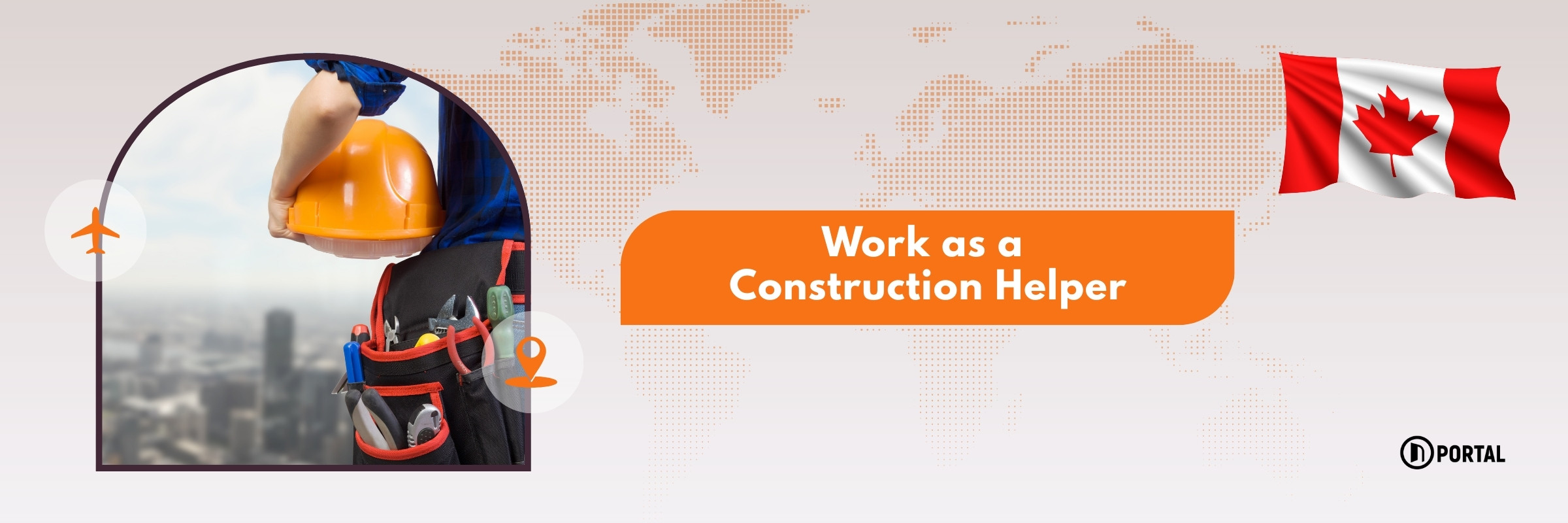
Work as a construction helper for Canadian construction companies, contractors, and building projects through the Francophone Mobility Work Permit.
Qualified applicants who speak French and English can receive a job offer from Canadian employers in the construction industry. This role is suitable for those who want hands-on work experience in Canada’s fast-growing construction sector and the chance to grow into higher-skilled trades over time.
As a construction helper in Canada, you will:
Assist skilled tradespeople such as carpenters, bricklayers, or electricians on construction sites
Carry, load, and unload building materials and tools
Prepare job sites by cleaning, setting up scaffolding, and moving equipment
Mix, pour, and spread materials such as concrete or mortar
Use basic hand tools and power tools under supervision
Remove debris and maintain a safe, clean workspace
Follow safety procedures and wear protective gear at all times
Perform other general labor tasks as directed by supervisors
Language: Good English communication skills + B1 level French test (or proof of French-language education)
Education: No specific diploma required (high school preferred)
Experience: Previous construction or general labor experience is an asset but not mandatory
Skills:
Physical stamina and ability to lift heavy loads
Basic knowledge of construction tools and safety practices
Teamwork and willingness to follow instructions
Reliability, punctuality, and safety awareness
Flexibility to work outdoors in varying weather conditions and on different shifts
Applicants will be hired under the Francophone Mobility Work Permit program
Candidates must pass a French language test (exceptions apply if you studied in French)
Once hired, the immigration consultants will assist with the work permit process and service fees will be applied
No. Construction helper jobs usually fall under TEER 5, which is not a PR-eligible category. This means your Canadian work experience as a construction helper does not count directly toward PR programs. However, once in Canada, you may transition to higher-skilled construction jobs (like carpenter, electrician, or welder) that are eligible for PR.
Residential, commercial, and industrial construction companies across Canada regularly hire construction helpers to support skilled workers and projects.
No, you cannot bring your family members under the current immigration restrictions for TEER 5 occupations. This may change in the future. Once you transition to a higher-skilled trade, your family may be able to join you.
Not always. Many employers accept candidates with little or no prior experience as long as they are physically fit and willing to learn.
The Francophone Mobility Work Permit is usually valid for 1–3 years, depending on your job offer. It can often be renewed if your employer extends your contract.
Yes, but you will need to apply for a new work permit tied to your new employer.
Absolutely. Our team assists with job matching, paperwork, the French test, and your entire work permit application. We’ll guide you through every step.
The process — from job offer to receiving your work permit — can take up to 1 year. This may vary depending on your profile, employer response time, and visa processing times.